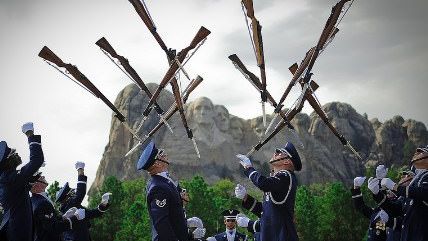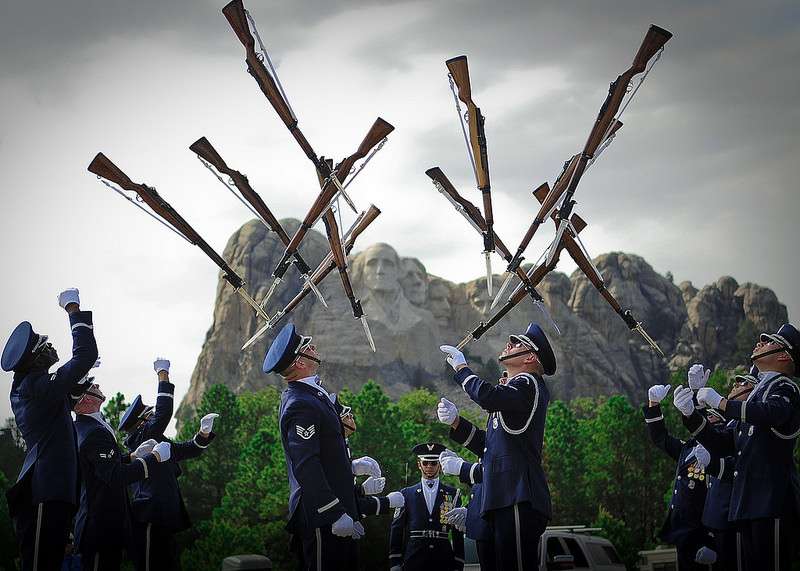Air Force Loosens Up on Showing Transgender Troops the Door
Officers add another layer of evaluation before ejection.


It must say something about how the government—or at least the military—works that adding another layer of bureaucracy is considered "easing" a policy.
Nevertheless, that's how the Air Force's new behavior toward airmen and women who are transgender is being described. Currently the military does not accommodate transgender troops—they are ejected. But the military is also now reconsidering this policy and the assumption that a transgender person is inherently incompatible with military service. The Air Force is now following the lead of the Army and has added a new step to the process of ejecting a transgender member. Now the authorization to boot the airman or woman is being bumped up the ladder for further review. From the Huffington Post:
Until now, the decision to discharge has rested with a unit commander and a doctor who diagnoses that officer with a medical condition, gender dysphoria. Now, high-level officials at Air Force headquarters will be required to review the decisions made by those lower-level leaders and determine whether an officer's gender dysphoria interferes with duty requirements.
"Though the Air Force policy regarding involuntary separation of gender dysphoric Airmen has not changed, the elevation of decision authority to the director, Air Force Review Boards Agency, ensures the ability to consistently apply the existing policy," Daniel Sitterly, a spokesman for the Air Force's Manpower and Reserve Affairs, said in a statement.
This is not dissimilar to what the military implemented as a sort of transitional policy as politicians and generals were hammering out the end of "Don't Ask, Don't Tell." Even before the regulations that booted men and women from the military for coming out of the closet or living openly gay died, the military added a similar layer of bureaucracy to allow higher-level officials to pause the process and keep gay troops serving.
Setting up a guideline to evaluate whether a person's gender dysphoria must interfere with his or her ability to do her job in the military seems like a smart idea, though there is bound to be some inevitable complications of subjectivity. A transgender person's transition process is unique to him or her, and some handle it better than others. I've known a few transgender people pass through the process in my time. Some would be absolutely fine with the obligations and stresses military work holds. Others I wouldn't trust with a houseplant. It's possible, though, these distinctions would remain the same even if they weren't transgender. It's possible to support Chelsea Manning's transition, and even support her decision to leak classified military information, but still think maybe military service wasn't the best place for her as she struggled with her identity.
